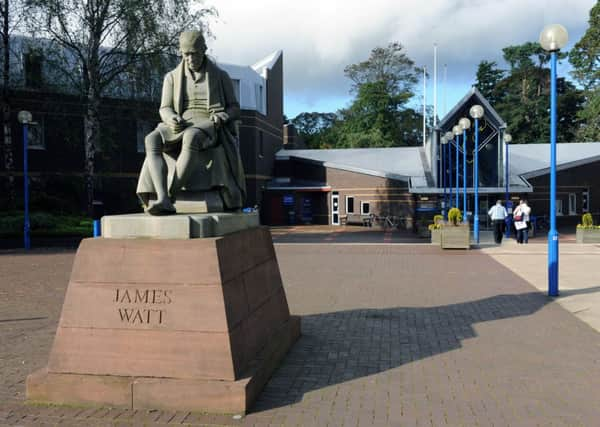New technology could ‘add decades’ to oil reserves


A team at Edinburgh’s Heriot-Watt University say they have made a breakthrough in developing clean and cheap methods to maximise extraction from existing fields.
The university’s Centre for Enhanced Oil Recovery has been working on a technique known as low-salinity water injection and researching which fields would benefit most from it.
Advertisement
Hide AdAdvertisement
Hide AdThe team has also been developing gas injection technologies for use in reservoirs that are already flooded with water.
Game changer
Professor Mehran Sohrabi, the centre’s director, believes new technologies could be a game changer for the industry and has called for more investment to reverse the decline in North Sea production.
He said: “At least half of the original oil still remains in the North Sea reservoirs but there are great challenges in extracting it using enhanced oil recovery (EOR) techniques.
“These include limited platform space and large well spacing, making extraction too expensive to pursue.
“Following years of research at the university, we now believe we can overcome these challenges.”
Salt levels
Low-salinity water injection works by reducing the salt levels in sea water that is already injected into reservoirs.
Mr Sohrabi said: “It has the potential to make a huge impact on the current output of the North Sea’s oil production.
“We have developed a robust method to screen oil reservoirs to identify the ones that would respond positively to low salinity water injection.
Advertisement
Hide AdAdvertisement
Hide Ad“This allows us to estimate the size of incremental oil recovery, which is vital for economic calculations of enhanced oil recovery projects.
Yields could rise
“This is a massive leap forward, especially in an offshore setting. The process is relatively inexpensive, meaning the costs for EOR could fall dramatically while yields could rise.
“It’s also cleaner as you’re removing the need for potentially toxic chemicals.”
He added: “After 40 years of production, the North Sea oil reservoirs are now mature and in rapid decline. Urgent action is needed now.
“The Government and industry must invest in new gas and water technologies, in order to reverse that decline.”